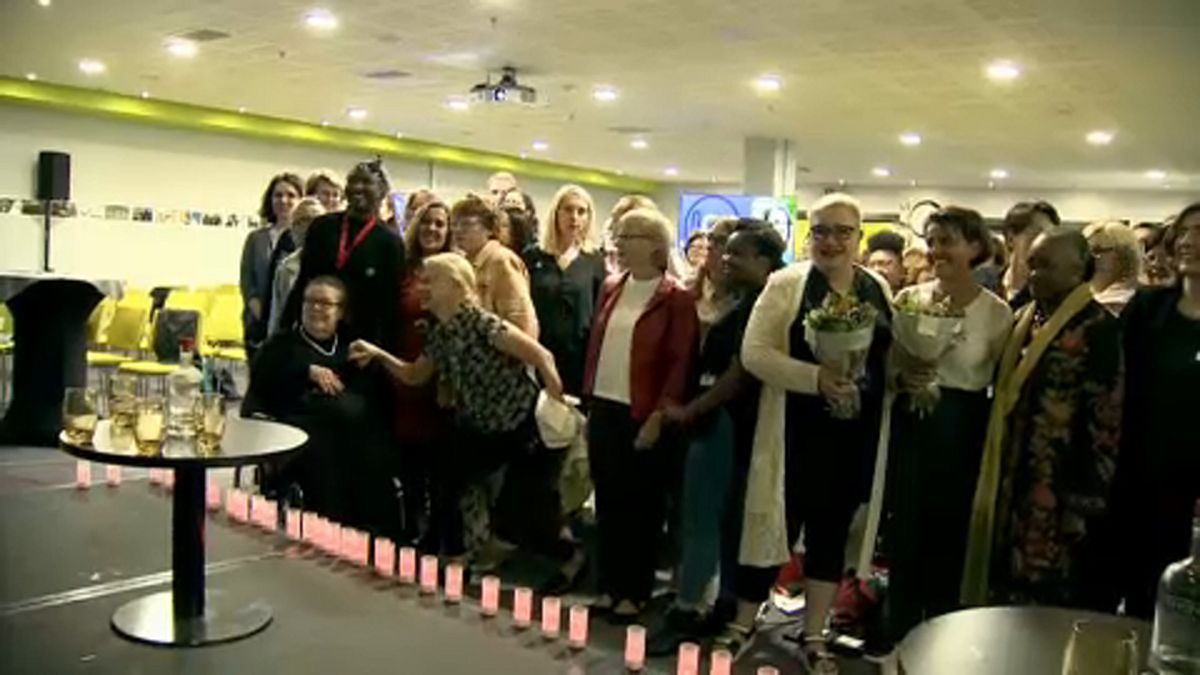The amount of women elected to the incoming European Parliament will increase overall female representation from 36% to 39%, but many want to see gender parity in the institutions' top positions.
The amount of women elected to the incoming European Parliament will increase overall female representation from 36% to 39%.
This means 286 of the 751 seats in the European Parliament will be filled by women. For Florence Blaimont, the CEO of the Wonderful Women (WoWo) Community, this spike is long overdue. The WoWo Community is an organization that promotes women's involvement in business and politics.
"I see women's engagement in politics in the same way as I see it in higher management posts in big corporations," Blaimont said. "People think that if they invest a lot in their professional or political life, they will neglect their family. What is positive is that 85 percent of women would like to have a job that is more in tune with their ambitions."
Another big talking point in Brussels right now is how to get parity in the four top posts of the EU's institutions. However, out of the 11 names being suggested by the European Parliament and Council right now, only one is woman.
For the European Women's Lobby, gender parity in EU institutions is paramount, so much so that they published their own manifesto on it. Ana Sofia Fernandes, Vice President of the European Women's lobby, explained how the EU could advance women's rights in the next five years.
"The existence of one Commissioner focusing on equality between women and men means that the Commissioner has the same level of political influence as all the other Commissioners," Fernandes said. "This will allow that person to negotiate with all their colleagues to ensure that the principle of equality between women and men is taken into account."
Sirpa Pietikäinen, a Finnish MEP (PPE), said she hopes to see the first female appointed to European Commission president this year. This is something that has not happened in the 60 years since its inception.
"You need to take care of the top jobs first," Pietikäinen said. "You need to propose both male and female candidates for the commissioners' posts for each member state."
Barbara Hendricks, an opera singer living in Sweden, said stereotypes about girls need to be eliminated at a young age.
"Young girls are usually better in science than boys are, but something happens that cuts that off," Hendricks said. "It says to girls, 'oh, you are not supposed to be good on this.' I think what we need to do is stop that message before it gets into the heads of girls."
In order to change such mindsets, Cécile Maïchak wrote a book profiling 12 successful women in "traditional male roles."
"Feminism should stay in the political agenda priorities and even develop a bit further in partnership with men," Maïchak said. "There are a lot of men that are affected by feminism; not only the women."
Five of the EU's 28 member states are sending a gender-balanced group of MEPs to the parliament after the recent election: Sweden (55%), Finland (54%), France (50%), Slovenia (50%), Luxembourg (50%).
